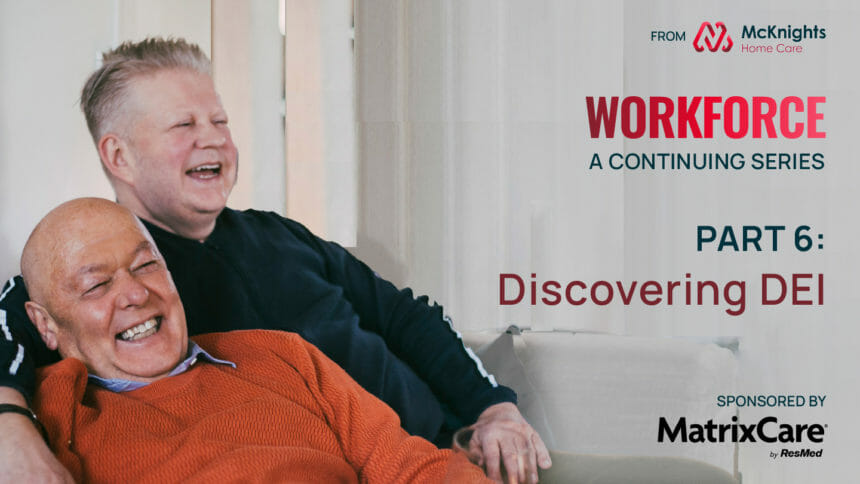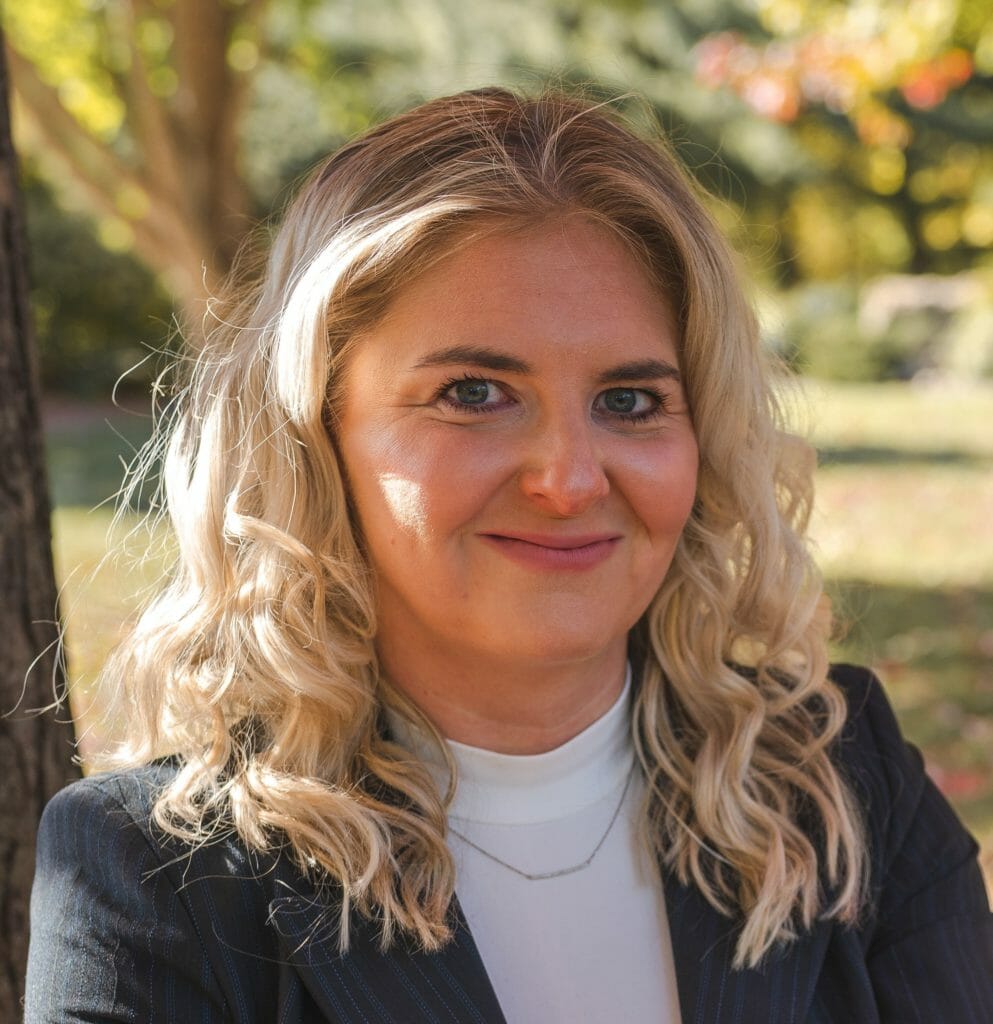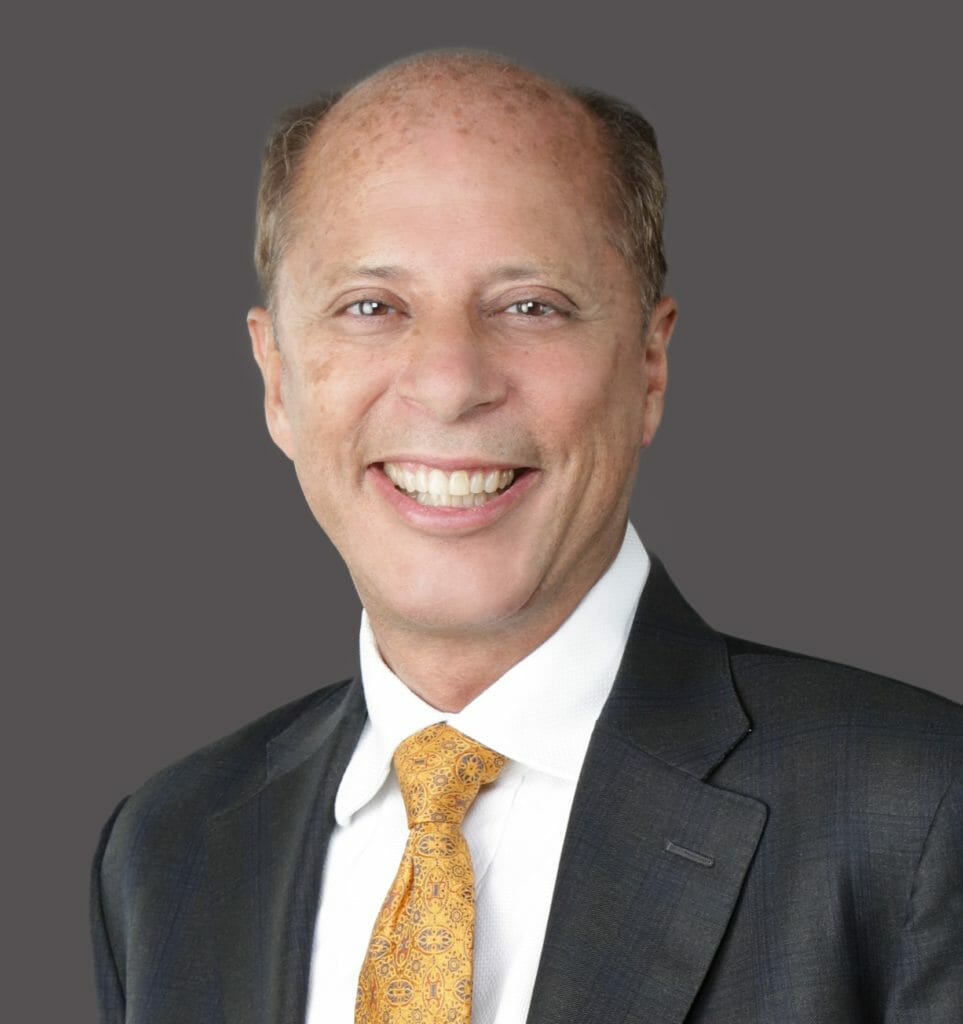
With only 14 employees and six clients, Brianna Beltran has big plans for the Synergy HomeCare franchise she launched three months ago in St. Paul, MN.
Beltran wants to build an inclusive home care agency, where everyone from staff to clients feels accepted, including those in the LGBTQ community. To that end, the company’s marketing is gender-neutral, and staff members wear badges that include their pronoun of choice.
Beltran told McKnight’s Home Care Daily Pulse her agency’s approach isn’t a marketing gimmick. Rather, it’s simply the right way to conduct business today.

“I don’t want to take the trans community and make them a special group — these are the special caregivers for the trans people or this is the special home care company for the trans community,” Beltran explained. “That is doing the opposite of what I want to do. That is two drinking fountains. We should be normalizing this.”
A growing number of home care and hospice firms are joining others in corporate America in recognizing the importance of building diverse, equitable and inclusive businesses. In June, home care giant Amedisys released its first environmental, social and governance report, which included diversity statistics of staff and management, as well as steps the company is taking to become more inclusive.
Diversity, equity and inclusion are unique terms that function hand in hand. Diversity is the inclusion of underrepresented groups based on race, gender, ethnicity, sexual orientation, religion, socioeconomic status, age and political status. Equity promotes justice, impartiality and fairness within processes and procedures. And inclusion is the outcome that ensures those diverse groups feel welcome.
DEI key in healthcare
As a purpose-driven industry, DEI is especially important to healthcare providers, according to Ash Shehata, national sector leader of healthcare and life sciences for global consultant KPMG. Shehata told McKnight’s Home Care Daily Pulse it is crucial that providers try to reflect all of the patients they serve.
“If you look at your constituents within the communities that you serve, are your employees reflective of that community?” Shehata asked. “If those two are a good match, then you are on a good path.”
Androscoggin Home Healthcare and Hospice is trying to accomplish just that. It serves communities that are predominantly white in southeastern Maine, but in recent years a growing number of Somali and Iraqi immigrants have settled in the region. So the agency is beginning an effort to recruit caregivers from those two groups.
“In our experience, the Somali immigrants — especially the first generation — are hesitant to accept healthcare at home from someone not of common culture,” Androscoggin Home Health and Hospice President and CEO Kenneth Albert told McKnight’s Home Care Daily Pulse. “We use cultural navigators when possible, which allows for a more meaningful and impactful healthcare experience for all involved.
Creating a diverse, equitable and inclusive workplace will be key to the direct care industry as it races to recruit and retain an estimated 6.9 million workers by the end of the decade. Many of those workers will likely be millennials. A 2018 study by professional services company Deloitte estimated the demographic will make up 75% of the U.S. workforce by 2025, and the majority of millennials polled want to work for companies that foster inclusive cultures.
Use a roadmap
In order to build an inclusive company, you need a roadmap to get there, according to Andres Tapia, senior partner with management consulting firm Korn Ferry. He has helped companies with as many as 500,000 employees to fewer than 50 develop diversity, equity and inclusion plans.

“A DE&I plan is really a declaration of why this is important for the organization and what are the outcomes it wants to achieve,” Tapias told McKnight’s Home Care Daily Pulse.
Tapias said every good DEI plan contains four important elements: committed leaders, behavioral inclusion which addresses unconscious bias, systems to promote inclusion and sustainability.
Tapias said a lot of companies are eager to build more inclusive cultures but stumble badly when it comes to executing a DEI strategy.
“They’ll say things [to the employee] like we don’t do that here or you don’t understand … as opposed to we’ve never done it that way. Tell us what you’re thinking,” Tapias said. “That is a very different tone.”
Many companies are just beginning to track the impact diversity, equity and inclusion have on customer service, reputation, employee retention and return on investment.
Androscoggin Home Healthcare and Hospice is just beginning to develop its own DEI plan. Albert said his primary focus is creating a workplace where staff feel like they belong, rather than simply fit in.
“When we are able to bring our authentic selves to a team, we are far more likely to experience true belonging,” Albert said. “Being part of a team is more than just fitting in, it is a sense of belonging to a community with people and purpose that makes us feel connected.”
Editor’s note: Korn Ferry’s Andres Tapia will offer more advice on developing DEI plans Thursday in a McKnight’s Newsmakers podcast.
More to come: In terms of labor problems, there has never been a time like today. In this ongoing series, McKnight’s Home Care will explore the various facets of the workforce shortage, how home care is responding to it and the innovation that is propelling the field forward with new and sometimes unconventional solutions. Read a new installment each month until the end of the year.



